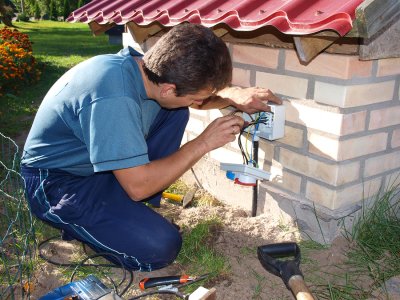Safety is a top priority when it comes to working with electricity, which is one of the many reasons why it’s crucial that you leave all electrical repairs and installations to a certified electrician in San Jose . Not only will an electrician know how to safely work with electricity, but he will also know how to leave your electrical system in the safest possible shape. Case in point: Grounding. Electricity follows the path of least resistance, and without proper grounding that path could be you or someone you love. Here are some important things to know about electrical grounding and electrical safety in general. 
How Grounding Works
Although most electrical systems have fuses or circuit breakers to prevent deadly fault currents or short circuits, people can still be fatally shocked by a current well below the point at which a fuse will blow or a circuit breaker will switch. Grounding provides an electrical current or system with a conductor that is less resistant than humans, which means the electricity will always flow through the grounding wire. Most electrical cable contains a bare wire, which carries the grounded connection to an outlet or appliance.
How to Determine if Electricity is Grounded
Although you should not attempt any electrical repairs or installations on your own, it’s still important that you know how to tell if your home’s electrical system is grounded. Generally, three-pronged outlets are a good indication that your home is properly grounded. However, the only way to know for sure is to have a qualified electrician check out your electrical system.
Danger of Ungrounded Electrical Currents
Ungrounded electrical systems can pose a serious safety hazard, especially in older homes that may have damaged or worn out electrical wiring. In addition to the risk of shock and electrocution resulting from touching an ungrounded electrical receptacle, entire appliances or devices can become charged with electricity if plugged into an ungrounded outlet, which greatly increases the risk of electrocution.


